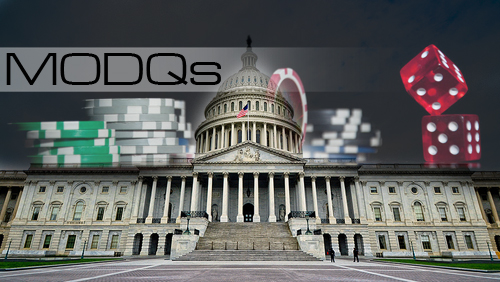 There are so many subplots surrounding regulation of online gambling in the United States that it’s become pretty tricky to keep up with all of them. Interstate compacts, Indian tribe involvement, geolocation and the ability to actually make a profit are just some of the plethora of talking points.
There are so many subplots surrounding regulation of online gambling in the United States that it’s become pretty tricky to keep up with all of them. Interstate compacts, Indian tribe involvement, geolocation and the ability to actually make a profit are just some of the plethora of talking points.
But one of the most prominent issues on the online gambling agenda is the possibility of federal legislation. Despite the fact that multi-state compacts are now being signed which many thought might eventually prove to be a catalyst for federal legislation, it’s still not looking likely – certainly not in the short term.
Watching on from the UK, on the surface federal legislation seems to be a simple solution with a framework allowing states to regulate online gambling in similar ways. In practice it’s increasingly apparent that this might not even be feasible let alone be a simple solution.
It’s apparent because a multitude of well informed opinions suggest that federal regulation won’t work while a common sentiment seems to be that online gambling regulation simply not a Federal issue. But with so many differing opinions, what are the strongest reasons for believing that federal legislation isn’t imminent?
Bad business
One opinion has come from Bill Pascrell III who put a different spin on this argument by approaching it from a slightly different viewpoint than we’re used to – one less focused on the benefits to the online gambling industry. Having been a key lobbyist involved in the passing of legislation in New Jersey, Pascrell is well placed to comment and claims that Washington should stay well clear of any iGaming legislation.
Speaking at the International Casino Exhibition last month Pascrell explained how regulating this activity federally simply isn’t the way that US is meant to work.
“I think that recently the US Supreme Court and the decision involving voting rights made last year made an interesting observation about states’ rights when it comes to sports betting.
“If you were to take the eleven largest states then you would have 75% of the online gaming industry in America why would it be a good business model to have an overlay? So you would be able to operate in all 50 states but you take on the regulatory risk of the rest of the states. Perhaps regulators in a state like Wyoming could jeopardise an online gaming license because they maybe woke up on the wrong side of the bed that day.”
Pascrell’s persuasive argument not only draws attention to the fact that the United States’ ‘founding forefathers’ hadn’t intending things to be but also that it doesn’t represent an attractive proposition for operators. In the land grab that’s currently taking place the focus of many companies has simply been getting a foothold in the US market. Because the benefits of the market have been talked up so much in previous years it’s almost as if profitability has fallen by the wayside.
As the markets that are regulated are beginning to find their feet we’re beginning to see that it’s not simply a case of turning up. Revenues are below almost all predictions with the likes of Delaware bringing in just $250,000 in its first seven weeks of operation.
Money spinner
Speaking last year gambling law specialist Professor I Nelson Rose held a pretty cynical view that it’s not really being seen as a serious issue by many of the people that matter.
He explained: “It’s just being talked about mainly so that some congressmen can raise some money for campaign contributions. They’ve literally passed no new laws except for naming post offices and courts.”
We’re currently seeing what could be a prime example of this with Republican Senator Lindsey Graham confirming recently that he’s working on a federal bill to regulate online gambling. Graham’s sudden concern for a regulated online gambling industry is suspicious given his previous lack of interest in the subject and the fact that he’s hoping to be re-elected later this year.
We have to wait until the middle of next month until campaign funding reports are made public. These reports could confirm what the skeptics already believe to be true in that the name of a casino corporation or two may well appear on that list.
States’ rights
There’s also a much broader reason behind why many believe that online gambling regulation won’t be the subject of federal attention and that is because it’s simply not a federal issue.
Taking the power to regulate or not regulate out of the states’ hands is not the way in which the US government is set up. It would be seen as a restriction on their freedom of choice which in this instance is referred to as states’ rights.
Bill Pascrell III touched on this subject at ICE. He said: “I believe that the states are the crucible for experimentation and I believe in states’ rights.
Professor Rose appears to be of a similar disposition. He explained: “They have passed money bills but no substantive laws so the chances of a bill coming through congress that regulates laws Internet gambling is slim. That would override Nevada and would be an interference with state rights.”
One last point worth considering is that congressmen are not computers. They have their own agenda and more importantly their own opinions. Unfortunately, as Professor Rose explains, that doesn’t necessarily bode well for online gambling.
He says: “Legalising Internet gambling is opposed by all those conservative, religious, Republicans and even some very liberal Democrats who think that poor people should not be gambling or drinking beer.
“There’s just no way anything can get through congress at least for two or three years.”